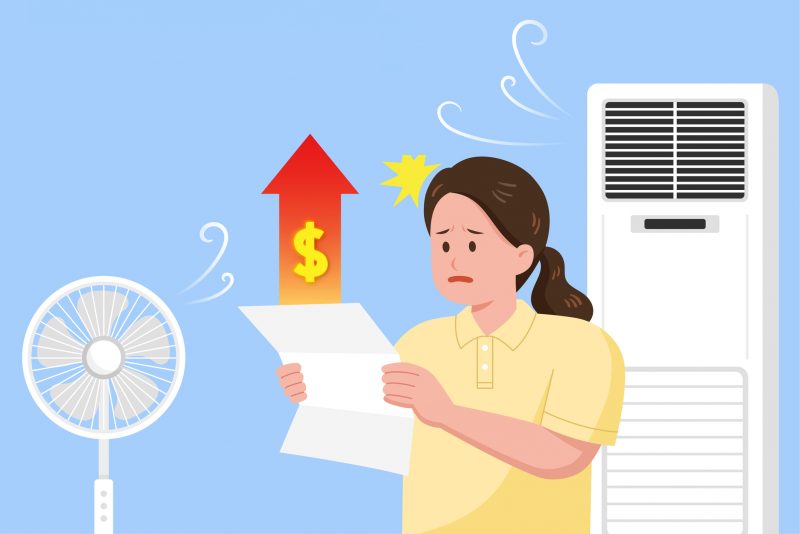The rising cost of electricity is putting a strain on consumers, as they are using more electricity amid climate change-induced heat waves.
CBS News reported that the cost of electricity per kWh is expected to increase 28.5% from $0.14 in 2019 to $0.18 as of March 2024, bringing utility costs, including water and gas, to nearly $300 per person per month.
As rising electricity prices become an economic burden, 16% of households nationwide are in “energy poverty,” spending more than 6% of their income on energy costs, according to a 2022 study published in Nature Communications.

The report notes that energy inequality is an increasingly pressing issue, with 5.2 million households living above the poverty line experiencing energy poverty, and disproportionately impacting Black, Hispanic, and Native Indian communities.
Electricity rates are determined by a variety of factors, including fluctuations in natural gas prices, wildfire risk, transmission and distribution, and inflation, but experts point to heat as a factor that, unlike inflation, is not going away.
In recent years, the U.S. and other parts of the world have been experiencing extreme heat, and rising temperatures have led to more extreme weather events, such as summer heat waves and severe winter snow storms, that are driving up energy consumption.
Power outages are also a major problem, and scientists at the nonprofit Climate Central found that weather was responsible for 80% of the nation’s major power outages from 2000 to 2023.
The correlation between heat and energy poverty was shown in a survey released earlier this month by the AP-NORC Center for Public Affairs Research.
Nearly seven in 10 respondents said the heat had a major impact on their electricity bills, with 39% saying it had a major impact and 30% saying it had a minor impact. Nearly 40% also said they experienced unexpected utility bills due to extreme weather events, including storms, floods, heat waves, and wildfires.
Experts are pointing to clean energy as a long-term solution to these energy challenges. According to the Energy Information Administration (EIA), 60% of the nation’s electricity production last year came from burning fossil fuels, with renewables accounting for only 21% of total electricity generation.
A March 2020 report found that continued climate warming could cause significant damage to energy infrastructure, such as shortening the lifespan of substation transformers, which could increase annual climate change-related spending by up to 25%. However, taking action on climate change could reduce projected costs by up to 50% by 2090.
In fact, in 2021, the Center for American Progress found that investing in clean energy infrastructure could save households nationwide $500 per year in energy costs alone.
BY NAKI PARK, HOONSIK WOO [park.naki@koreadaily.com]




